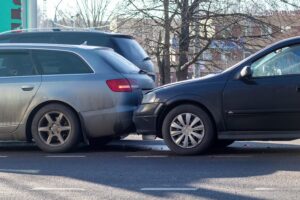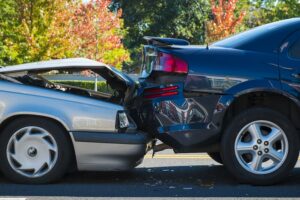If you are injured while riding as a passenger in a vehicle, it can be confusing to figure out your legal rights. The experienced car accident attorneys at Gruel Mills can help you understand the legal remedies you can pursue to get the compensation you need and deserve if you were injured in a car accident.
Passengers and Automobile Insurance
In Michigan, automobile no-fault insurance covers a passenger in a motor vehicle accident. Under the No-Fault Law, passengers are entitled to personal injury protection (PIP) benefits to pay for medical bills, some lost wages, and replacement services. However, the coverage level selected in the applicable insurance policy may limit the benefits available for a passenger’s medical expenses.
Specific Order of Priority
 The law sets forth an “order of priority” to identify the insurance company that is responsible for paying PIP benefits. For passengers who are injured in a motor vehicle accident, the following order generally applies:
The law sets forth an “order of priority” to identify the insurance company that is responsible for paying PIP benefits. For passengers who are injured in a motor vehicle accident, the following order generally applies:
- Your policy: If you are a passenger and have no-fault insurance, you can file your claim under your own policy.
- Your spouse or resident relative: If you do not have automobile insurance, but a spouse or family member in your household does, you file a claim with their no-fault insurance company.
- Michigan Assigned Claims Plan: If you do not have insurance and there is no applicable resident relative policy, you can submit a claim to the Michigan Assigned Claims Plan, who will review your claim and assign it to an insurer if you are entitled to benefits.
However, there are exceptions to this priority list that may impact how you file your case depending on the accident’s circumstances. For example, the rules are different if you are a passenger in a bus, taxi, ride-share vehicle such as Uber or Lyft, or a vehicle owned by your employer.
To ensure you make a claim to the proper insurer after a crash, reach out to an experienced car accident attorney as soon as possible. These lawyers can figure out what legal options you have and assist you in obtaining all of the benefits to which you are entitled under the law.
Pursuing a Lawsuit as a Passenger Following a Car Accident
If the insurer who is supposed to provide your PIP benefits denies your claims or unreasonably delays paying you, you may need to file a lawsuit to get the benefits you are entitled to under the law. This is sometimes called a “first party” lawsuit.
And even if your insurer does pay all PIP benefits, these benefits may not cover all of your losses, and they are not designed to compensate you for the pain, suffering, inconvenience, and other non-economic losses that you may suffer. In some cases, you can seek these benefits from the at-fault driver in what is sometimes called a “third party” lawsuit. You can only bring a claim against the at-fault driver if you or a loved one suffered a serious impairment of body function, serious permanent disfigurement, or death.
The Types of Financial Damages You Can Pursue in a Lawsuit
As a passenger, if you can file a lawsuit following a motor vehicle accident, you may recover economic and non-economic damages.
Lawsuit for PIP Benefits
If the insurer responsible for your PIP benefits has not timely paid your claims, you may be able to recover for the following:
- Medical bills related to doctor visits, surgeries, hospital stays, medications, emergency services including ambulance rides, rehabilitative therapy, and other types of treatments
- Necessary modifications to your home or vehicle to accommodate mobility equipment
- The cost of attendant care, which is nursing-type care in the home
- Lost wages for three years after the crash
- A small amount per day for replacement household services, like shoveling, cleaning, and cooking
- Other benefits required by law to be covered.
Lawsuit against At-Fault Driver
A lawsuit against the at-fault driver may involve claims for economic or non-economic damages, such as:
- Medical bills that are above the cap on PIP benefits, if applicable
- Future lost wages if you will not be able to work for more than three years after the crash
- Pain and suffering
- Emotional trauma
- Shock
- Loss of quality and enjoyment of life
- Embarrassment, humiliation, or mortification
- Scars and disfigurement
Due to the subjective nature of these damages, calculating the amount of money you should seek can be challenging. For instance, pain and suffering damages are affected by numerous factors, including the severity of your injuries, the length of your medical treatments, and how the injury affected your ability to live your life.
Reach out to an experienced motor vehicle accident attorney immediately after a car crash. A lawyer can determine your legal remedies and calculate the losses you may be able to recover.
Protecting Your Legal Rights Following a Motor Vehicle Accident
After a motor vehicle collision, you will likely be upset and shaken up, and you may be seriously injured. Take care of yourself first. Then, if you or a family member or friend are able, it is a good idea to talk to any witnesses and gather evidence from the scene. This will help to protect your legal rights.
Reach out to the Police
Call 911 to alert the authorities and emergency medical personnel of the accident. The police can investigate the collision and create an accident report. If you decide to file a personal injury claim, this report may help your case by providing additional information regarding what happened and who was at fault for the accident.
Get Driver Information
If possible, try to obtain information from every driver involved in the crash. This information should include names, driver’s license numbers, insurance information, and personal contact details.
If these drivers are uncooperative, wait in your car for the police to arrive. The officers can obtain these details, and your attorney can get them from the police report.
Check for Witnesses
If people at the scene saw what happened, try to obtain their contact details, including their names, email addresses, and phone numbers. These witnesses can offer testimony that is usually critical for filing an injury claim and help your lawyer better understand what happened and who was liable for the collision.
Document the Scene of the Crash
If the accident scene is safe and you are not injured, collect as many photos and videos as possible, including shots of:
- The crash scene
- The vehicles involved in the crash
- The damage to these vehicles
- The placement of these vehicles on the road
- Circumstances that contributed to the accident
- Injuries you sustained
- Traffic signals near the area
- Skid marks
- Any other evidence that can show what happened
However, do not worry if your injuries prevent you from obtaining these photos. After you retain legal counsel, these professionals can work on getting this evidence for you.
Get to a Medical Professional
Even if the harm you endured appears minor, you should still get checked over by a doctor. Serious injuries such as spinal cord or traumatic brain injuries may not be obvious at the time of the crash. It may be some time before symptoms manifest. Yet, the longer you wait to get treatment for these injuries, the more severe they can become.
Plus, a doctor also creates a medical report that details the severity of your injuries and links your trauma to the car accident, which can help refute any claims the insurance company makes that your injuries are not that severe or result from a separate event.
Work With an Experienced Car Accident Lawyer and Go After the Financial Recovery You Deserve
After a motor vehicle accident, you have suffered enough. The last thing you should worry about is taking on the insurance company or the at-fault driver to secure the money you deserve. Thankfully, with an experienced car accident attorney, you will not have to go after this compensation alone. Instead, a legal team can fight for the damages you deserve while you focus on more important matters, such as your recovery.
Once hired, your attorneys can:
- Figure out whether you have a viable claim.
- Thoroughly analyze the crash and look for evidence to help show fault and the degree of your injuries.
- Determine which parties caused the collision and hold all of them accountable for your harm.
- Ensure that legal motions and documents are prepared and submitted to the appropriate court before time expires.
- Deal with the settlement negotiations and pursue a just amount.
- Bring in experts to validate your legal case, including medical professionals and accident specialists.
- Take your case to trial if settlement is not possible.
If you endured harm as a passenger in a car crash, you might be able to receive compensation for your losses. However, to understand your legal options, reach out to the experienced personal injury attorneys at Gruel Mills for a free consultation and find out what they can do for you.
 Rear-end collisions also occur often when a vehicle is following too close behind another vehicle. Tailgating drivers often underestimate the distance that it takes to stop a vehicle and fail to account for the momentary reaction time they will need if the vehicle in front of them suddenly slows or stops.
Rear-end collisions also occur often when a vehicle is following too close behind another vehicle. Tailgating drivers often underestimate the distance that it takes to stop a vehicle and fail to account for the momentary reaction time they will need if the vehicle in front of them suddenly slows or stops. It is natural to feel overwhelmed with emotions after an accident. Anxiety, anger, and confusion are all normal feelings. However, try to control your emotions. Do not lash out or blame the other driver, and do not panic. It does no good and could even put you in greater danger to confront the other driver in anger.
It is natural to feel overwhelmed with emotions after an accident. Anxiety, anger, and confusion are all normal feelings. However, try to control your emotions. Do not lash out or blame the other driver, and do not panic. It does no good and could even put you in greater danger to confront the other driver in anger. When a car crash occurs, it is common for one or multiple people involved to sustain some injury. The severity of the crash, the force involved, the safety features in the car, and the physical vulnerabilities of the people affected all impact the type and extent of injuries that can occur.
When a car crash occurs, it is common for one or multiple people involved to sustain some injury. The severity of the crash, the force involved, the safety features in the car, and the physical vulnerabilities of the people affected all impact the type and extent of injuries that can occur. Sexual abuse
Sexual abuse Falls
Falls